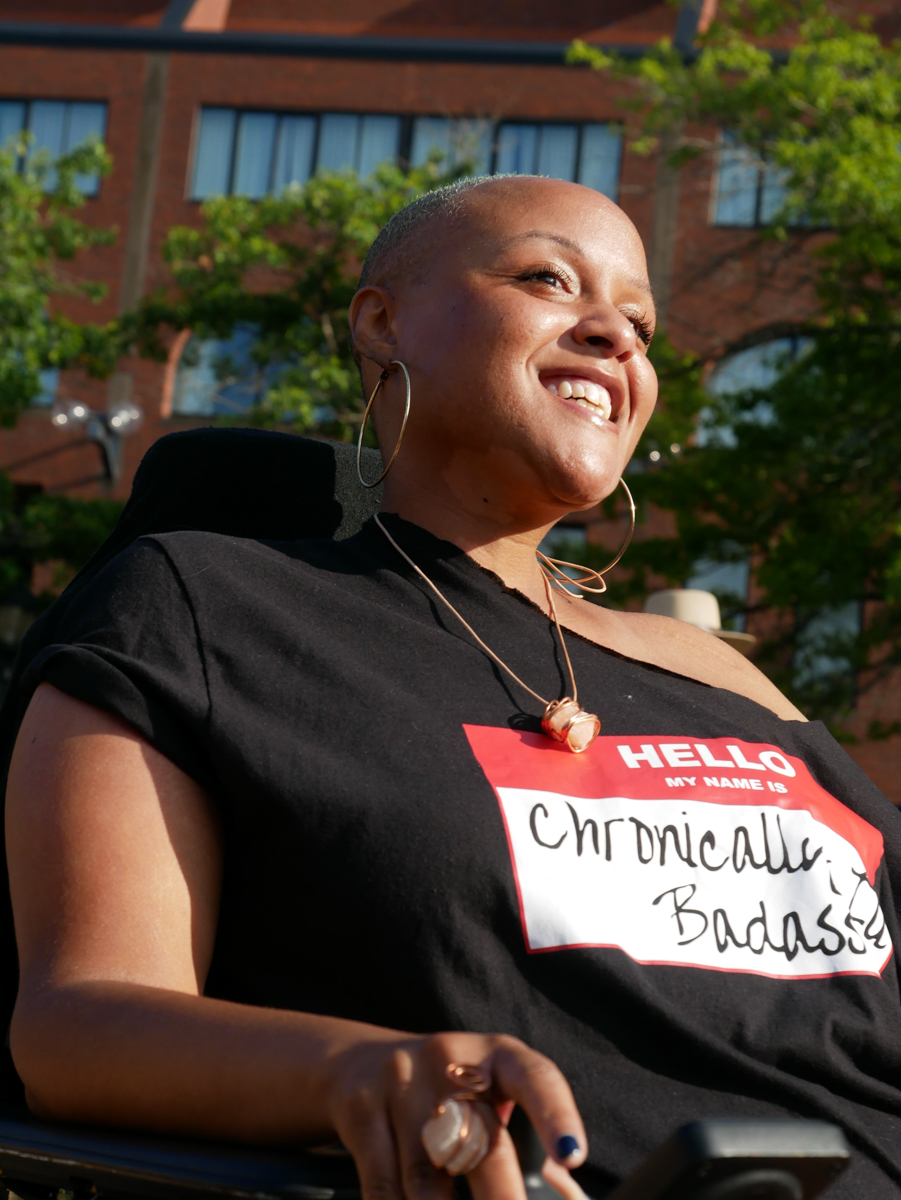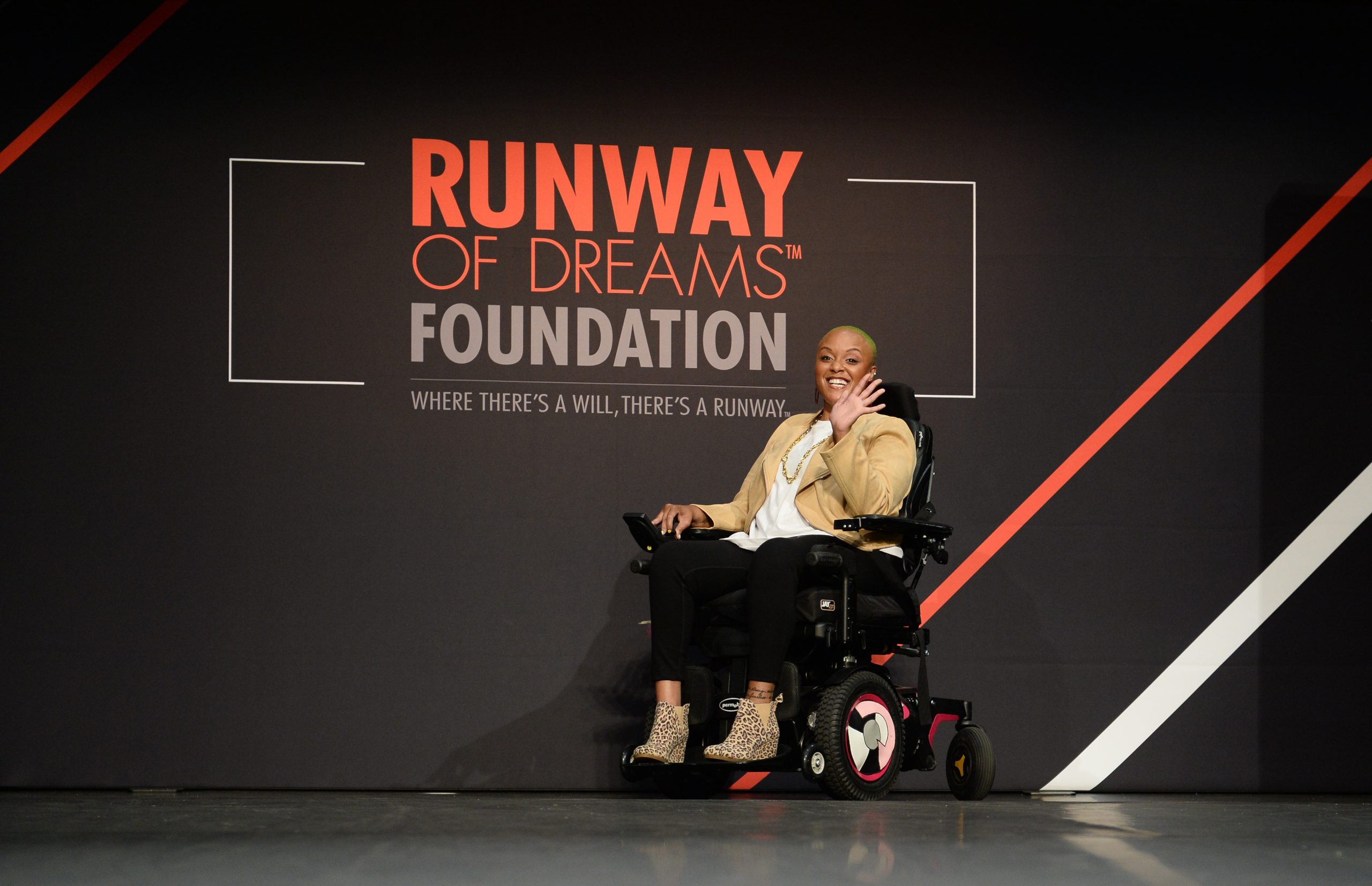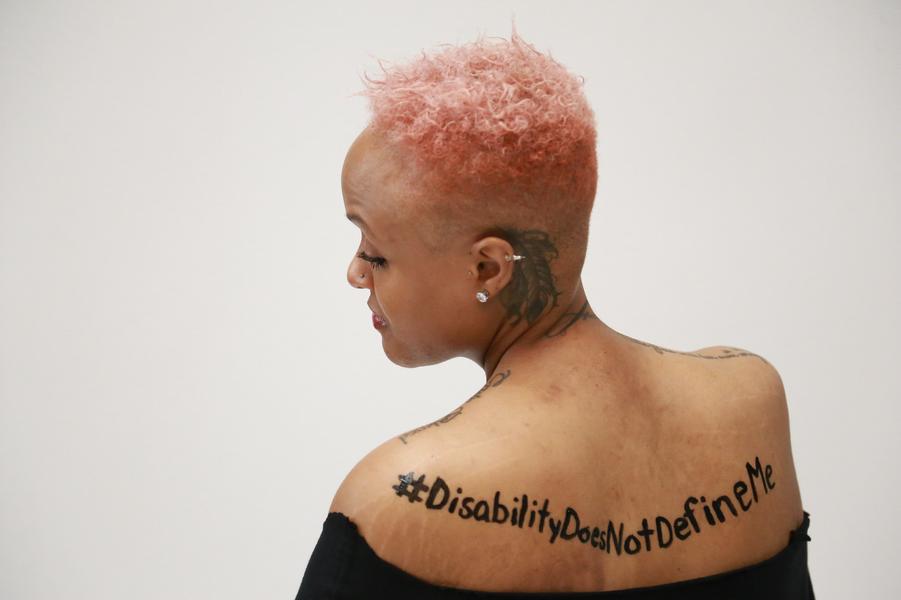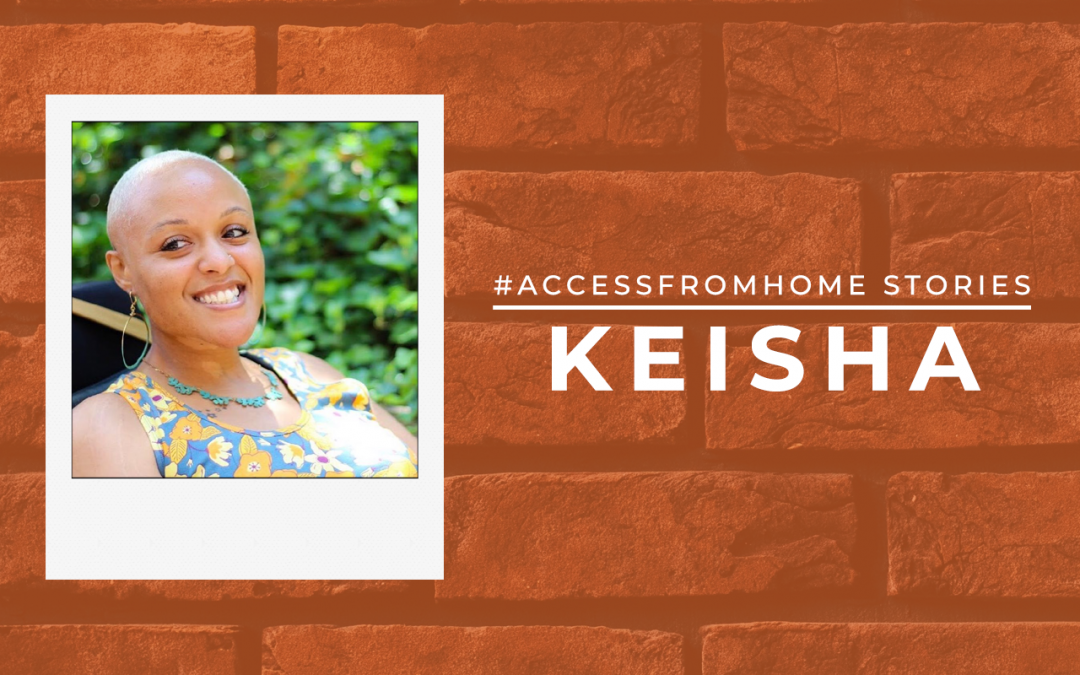Words by Keisha Greaves
Hi, I’m Keisha Greaves and I have limb-girdle muscular dystrophy. I am a millennial business owner who focuses on bringing awareness about the wellness, wholeness and “badassness” of those who are fighting chronic illness. Comprised of a clothing and merchandise line, an educational blog and a community for those with a chronic illness and their supporters, my brand Girls Chronically Rock was born out of my diagnosis. Unlike many whose MD was established during their adolescent years, my symptoms didn’t arise until I was in my early twenties.
The process sent me into a fast-track lesson of inclusion. Muscular dystrophy has multiple types that impact bodies in many ways. Limb-girdle, the type that I have, impacts the use of the arms and legs, and everything in between. My symptoms hit quickly like a ton of bricks: suddenly I was falling and struggling to lift my arms above my head to grab a snack from the cabinet or lift my legs to step in and out the tub. I needed help in brand new ways. I learned that I had to call ahead when venturing out with friends, seeing if there was a ramp and elevator available. When staying in a hotel, I needed to make sure it was really accessible, hosting the roll-in shower instead of the one with the slight step and seat. Sometimes you don’t realize until it happens to you but being diagnosed opened my eyes. Before I was wheelchair-bound, I looked pretty “normal” at first glance. People may not have been able to tell that my legs weren’t always working properly or that I was always afraid to fall. It taught me that I can’t assume someone’s situation because you never know what people are going through.
The more I learned, the more I wanted to teach others about inclusion and making sure that they made services and activities available to everyone, not just the able-bodied. I want to share my story and connect to others that may have known what it was like. I extended my testimony and friendship to many others online who deal with chronic illness. Some with debilitating cancers, MS and more. When I grew Girls Chronically Rock, the blog became a place that explained different illnesses, helped supporters know how to better support us, answered questions that able-bodied folks may be wondering. I spoke at schools, on podcasts and shows and helped others through the emotions that come with chronic illnesses. I also became a member of the Muscular Dystrophy Association.


Like many chronic illnesses, MD is progressive. It continues to get worse. Doctors have to keep an eye on my heart, limbs and lungs. There’s a lot that I can’t do on my own.
During this pandemic, it’s only slightly harder than usual. I miss the sunshine and being able to have in-person access to my doctors and nurses, but otherwise, I’m living life as usual. I live alone and because I’m immunocompromised, staying predominately alone is what’s best for me. Because I am no longer able-bodied, I still have access to my personal care assistant. It’s a must for me – as they, my current two PCAs, help me to do important daily tasks.
Every morning, my PCA arrives at my apartment in my assisted living building. She checks in at the front desk, noting that she’s on the approved list (put in place to keep the residents here as safe as possible amidst the coronavirus) and heads up to my floor. Before entering, I have an extra pump of hand sanitizer available before she lets herself in. She gets me out of bed and assists me to the bathroom to brush my teeth and get showered. I can’t dry my body myself, so she helps with that, too, followed by moisturizing and dressing me. When I’m ready for the day, she makes sure I’ve eaten breakfast and am set for the day. I usually have my laptop and the television remote nearby so that I can check e-mails, work on my business and enjoy Netflix or the latest episodes of daytime talk shows.
Despite having individual apartments, the option to eat dinner with others in the building is usually available in the dining hall. With coronavirus afoot, meals are now delivered to our doors. Between 4:30 and 5:30, my PCA returns and makes sure that I eat, have my medications, and change into my pajamas. With her help, I use the restroom one last time and gather any last-minute items and snacks to take back with me to my bedside. Once she leaves, I’m stuck in the bed until morning. If anything happens during the night, I’m left with only my emergency button that I keep around my neck.
I’m used to seeing my mom and my sister pretty regularly, but since the pandemic we’ve moved to a virtual setting. We’re on FaceTime every day. It’s better that way to make sure that we all stay safe and avoid the virus. Because I enjoy my solitude, I don’t mind not seeing anyone else in person right now – it actually feels kind of refreshing.
That’s not the only thing that’s positive about this time. Without travelling multiple doctors’ appointments during the day (instead I do many of them virtually), I have more time to focus on my business. Since quarantine, I’ve the opportunity to speak to students individually and through events about inclusion. I was even on a virtual panel sharing about inclusion, chronic illness and my experience with MD at a local university.
It’s not all bad.
But some of the ways the country is responding to it all is shaking the table – and has me shaking my head. I love that virtual resources and working from home has become very quickly available and widely accepted, but I have been wrecking my brain wondering why these things weren’t available before, when people like me have been fighting for #AccessFromHome opportunities for years. Working from home is suddenly okay. Doctors finally able to virtually serve and prescribe over video conferencing apps is suddenly alright. I’ve wondered why it couldn’t have been like this all along. Why couldn’t they make it easier on us?
I don’t know what’s in store for when quarantine is truly over, but I do hope the accessibility precautions they’ve put in place are here to stay. In our “new normal,” it will make things a little more equal and inclusive for all!

Keisha Greaves is a motivational speaker, the founder of Girls Chronically Rock, and the Massachusetts State Ambassador for the Muscular Dystrophy Association (MDA). Girls Chronically Rock offers inspired fashion celebrating Muscular Dystrophy and other chronic illnesses. Learn more and shop at www.girlschronicallyrock.com.
– – – – – – – – – – – – – – – – –
#AccessFromHome Stories features people from the disability community and advocates and lived experiences at home during COVID-19. #AccessFromHome Stories is made possible by our Supporting Partners Government of Canada and CIBC.
